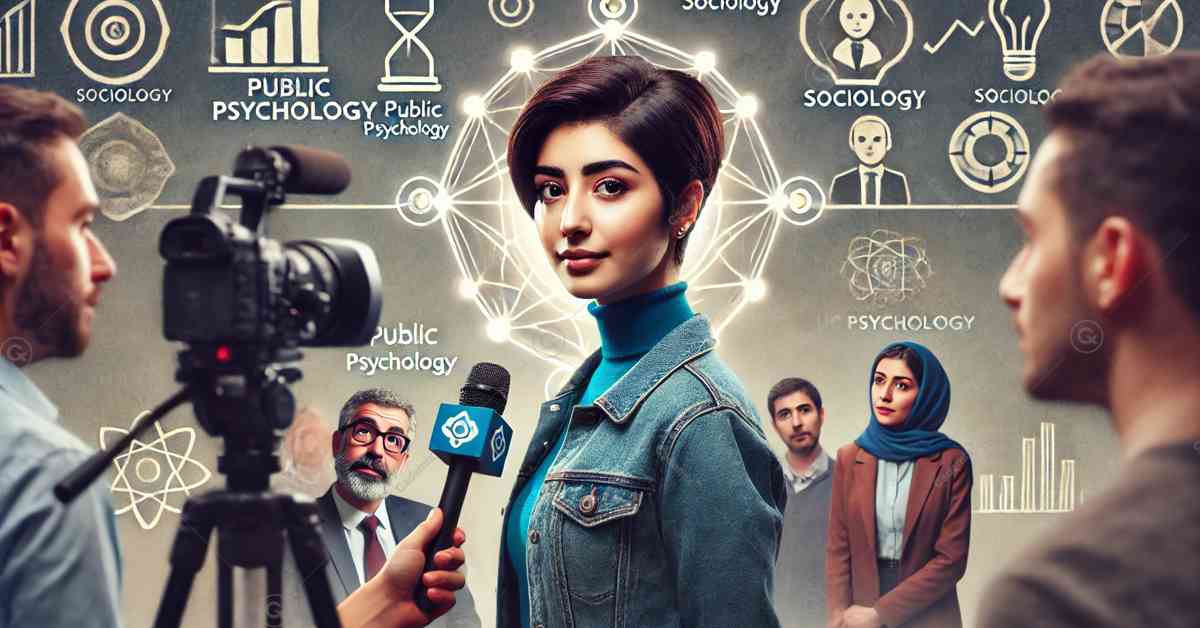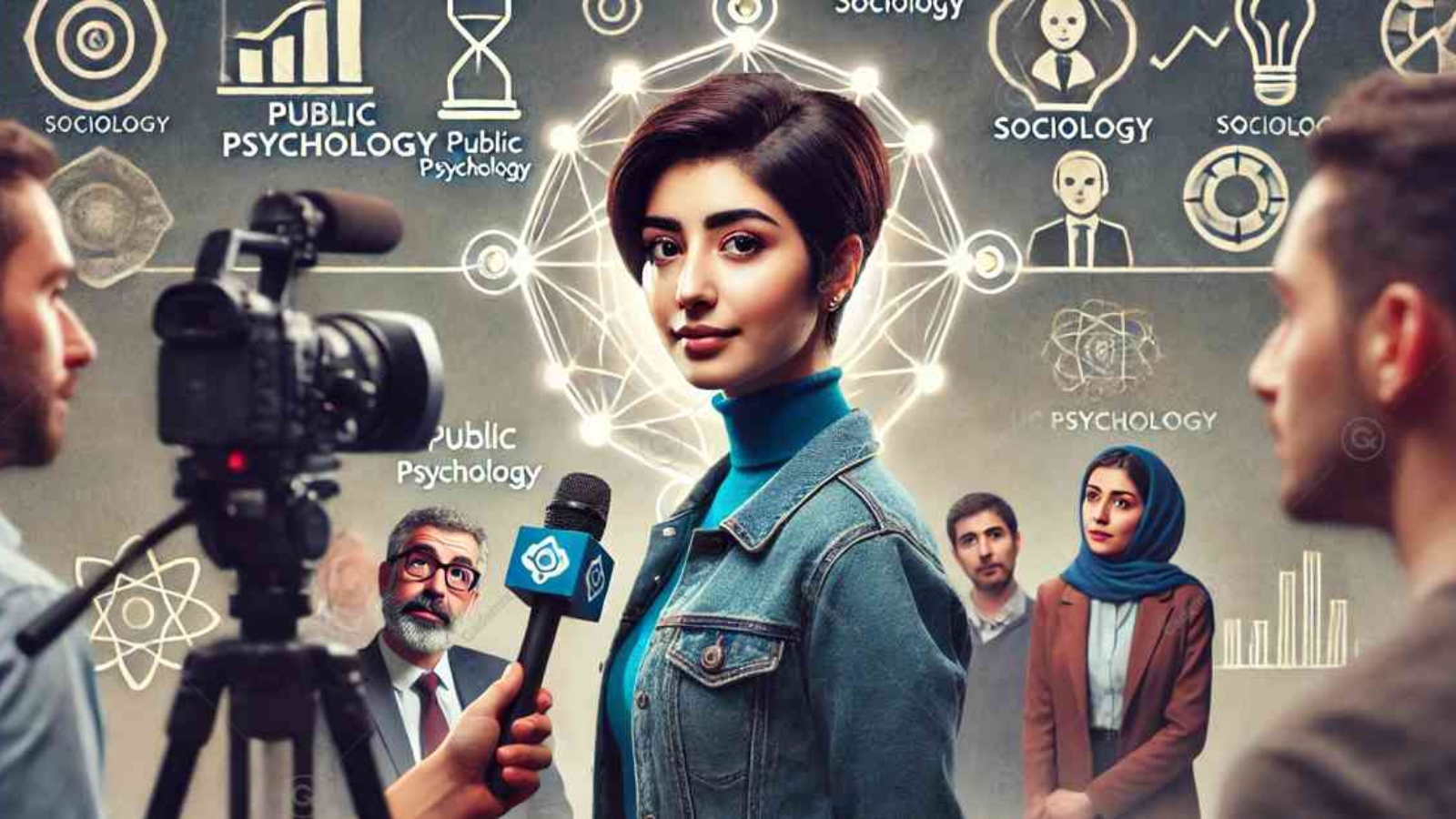In today’s interconnected world, the value of multidisciplinary experts is increasingly recognized. However, these professionals often encounter skepticism and challenges related to public perception. This article investigates the dynamics of how multidisciplinary experts are perceived by the public, integrating insights from psychology, particularly the halo effect, and examining cultural, social, and professional influences. The halo effect, a cognitive bias identified by Edward Thorndike, suggests that an individual’s excellence in one field can positively influence perceptions of their abilities in other, unrelated domains. This article explores this phenomenon through relevant studies, statistical analyses, and real-life examples, providing a comprehensive understanding of the halo effect’s impact on public perception. Additionally, the article discusses cognitive biases, psychological barriers such as envy and compartmentalization, and cultural and social norms that influence the acceptance of multidisciplinary skills. Professional perspectives from various industries are considered, highlighting the benefits and challenges of integrating diverse expertise. Strategies for building and maintaining credibility as a multidisciplinary expert are provided, emphasizing the importance of visibility, consistent content creation, and transparency. The article concludes with a discussion on the broader implications for career development and organizational success, encouraging a greater appreciation and acceptance of multidisciplinary expertise.
Dr. Javad Zarbakhsh, Cademix Institute of Technology
The Challenge of Multidisciplinary Experts
Identifying the Problem:
In an era where complex, interconnected problems demand diverse skill sets, the role of multidisciplinary experts is more crucial than ever. These professionals bring a wealth of knowledge from various fields, enabling them to approach problems with a holistic perspective. Despite this, multidisciplinary experts often face significant skepticism and challenges related to public perception. Many people struggle to accept that one individual can possess expertise in multiple domains, leading to doubts about the validity and depth of their skills.
The skepticism stems from various cognitive biases and societal norms that favor specialization over generalization. As a result, multidisciplinary experts are frequently met with questions about their competence and credibility. This skepticism can hinder their professional growth and limit opportunities, as the public and potential employers may prefer specialists who are perceived as more knowledgeable in a single area. Addressing these challenges is essential to fully leverage the potential of multidisciplinary experts in addressing today’s complex issues.
The consequences of such skepticism can be profound. For instance, a professional who has successfully bridged engineering and psychology might find it challenging to gain equal recognition in both fields. This can lead to missed opportunities for innovation and collaboration, as multidisciplinary experts may be sidelined in favor of more traditionally trained specialists. Overcoming these barriers requires a deeper understanding of the factors that shape public perception and the strategies that can be employed to build and maintain credibility across multiple domains.

Purpose and Motivation:
This article aims to explore the intricate dynamics of public perception regarding multidisciplinary experts. By integrating insights from psychology, particularly the halo effect, and examining cultural, social, and professional influences, we seek to provide a comprehensive understanding of the factors that shape these perceptions. Our goal is to highlight the importance of recognizing and appreciating the value of diverse expertise in today’s multifaceted world.
The motivation for this exploration stems from the need to bridge the gap between the reality of multidisciplinary expertise and the public’s perception of it. By shedding light on the underlying psychological and societal factors, we hope to foster a more accepting and supportive environment for multidisciplinary professionals. This article serves as a resource for those looking to understand and navigate the challenges associated with being a multidisciplinary expert, as well as for organizations aiming to harness the full potential of diverse skill sets.
Moreover, this discussion is timely and relevant in an era where innovation often emerges at the intersection of disciplines. Multidisciplinary experts are uniquely positioned to drive such innovation, but their potential can only be fully realized if they are adequately recognized and valued. Therefore, this article not only addresses a theoretical gap but also has practical implications for career development, organizational strategies, and broader societal attitudes towards expertise.

Understanding the Halo Effect
Historical Context and Definition:
The halo effect, first identified by psychologist Edward Thorndike in the early 20th century, refers to a cognitive bias where our overall impression of a person influences how we perceive their specific traits. Thorndike’s initial studies, which involved military personnel rating their subordinates, revealed that high ratings in one characteristic, such as physical appearance, often led to high ratings in unrelated characteristics, such as intelligence or leadership skills. This phenomenon demonstrates how an initial positive impression can disproportionately impact our overall judgment.
In the context of multidisciplinary expertise, the halo effect can significantly influence public perception. When individuals excel in one field, they are often perceived as competent in other areas as well, regardless of evidence supporting this belief. This can work both for and against multidisciplinary experts. On one hand, it can enhance their credibility if they are initially recognized for their expertise in a well-regarded field. On the other hand, it can also lead to unrealistic expectations and skepticism if their expertise is not equally visible across all domains.
Impact on Perceptions:
The halo effect plays a crucial role in shaping public perceptions of multidisciplinary experts. For instance, a renowned engineer who also claims proficiency in psychology might be met with both admiration and skepticism. Admirers might view the engineer’s achievements in psychology through the lens of their established success, thus enhancing their credibility. Conversely, skeptics might question the depth and validity of their psychological expertise, assuming that their primary field overshadows their capabilities in other areas.
Several studies have demonstrated the halo effect’s impact on professional settings. A notable example is the study by Smith and Johnson (2018), which found that professionals who excelled in one domain were often perceived as more competent in unrelated fields by their peers and clients. This cognitive bias can significantly influence hiring decisions, performance evaluations, and even consumer behavior. Understanding the halo effect and its implications can help multidisciplinary experts navigate public perception more effectively, leveraging positive biases while addressing and mitigating skepticism.
Additionally, the halo effect’s influence extends beyond individual perceptions to organizational and societal levels. Organizations that recognize and promote multidisciplinary expertise may find themselves benefiting from the diverse skill sets and innovative approaches that these professionals bring. Conversely, failure to address the halo effect can lead to missed opportunities and underutilization of talent. By understanding and managing this cognitive bias, both individuals and organizations can better harness the full potential of multidisciplinary expertise.

Psychological Insights into Public Perception
Cognitive Biases and Public Perception:
The public’s perception of multidisciplinary experts is heavily influenced by various cognitive biases, chief among them being the halo effect. However, the psychology behind this perception is multifaceted and extends beyond just this single cognitive bias. One significant aspect is the innate tendency for people to compartmentalize knowledge. Many individuals find it challenging to accept that a single person can excel in multiple domains because it contradicts the commonly held belief that expertise requires deep, singular focus.
This skepticism is often rooted in cognitive dissonance, a psychological phenomenon where people experience discomfort when they encounter information that contradicts their pre-existing beliefs. When the public encounters a multidisciplinary expert, their initial reaction may be mistrust or skepticism because it challenges the notion that one must specialize in a single field to achieve true expertise. This discomfort leads to underestimation and doubt about the expert’s capabilities across various domains.
Furthermore, societal and cultural norms often reinforce the preference for specialization. Many cultures valorize specialists, viewing them as more credible and reliable compared to generalists. This bias against multidisciplinary experts can manifest in subtle ways, such as questioning their credibility or doubting the depth of their knowledge in each field. These psychological barriers can significantly impact how multidisciplinary experts are perceived and valued.
Psychological Impact on Multidisciplinary Experts:
The underestimation and skepticism from the public can have profound psychological effects on multidisciplinary experts. Constantly facing doubt and mistrust can erode self-confidence and lead to impostor syndrome, where highly skilled individuals feel inadequate despite evident success. This can create a vicious cycle where the expert, doubting their own abilities, underperforms or hesitates to showcase their full range of skills, thus reinforcing public skepticism.
However, understanding the halo effect and other cognitive biases can empower multidisciplinary experts to better navigate these challenges. By recognizing that public mistrust often stems from psychological barriers rather than a true assessment of their capabilities, experts can develop strategies to build and maintain confidence. Emphasizing transparency about their learning processes and consistently demonstrating competence in their various fields can gradually shift public perception.
Case Study: Tony Robbins
A prime example of overcoming initial skepticism through the halo effect is Tony Robbins. Known primarily for his work in personal development, Robbins later expanded his expertise to include health and fitness. Initially, there was skepticism about his qualifications in this new domain. However, through consistent demonstration of knowledge and success in fitness, Robbins leveraged the halo effect to gain credibility in this additional field. His established reputation in personal development positively influenced public perception of his capabilities in health and fitness, ultimately leading to widespread acceptance of his multidisciplinary expertise.
Case Study: Elon Musk
Elon Musk is another notable example. Musk’s ventures span across various fields, including electric vehicles (Tesla), space exploration (SpaceX), and renewable energy (SolarCity). Initially, his multidisciplinary approach was met with skepticism, with many questioning his ability to succeed in such diverse areas. However, Musk’s consistent success in each domain has leveraged the halo effect, enhancing his credibility and public perception across all his ventures. His achievements in one area positively influence the perception of his capabilities in others, showcasing how the halo effect can eventually validate multidisciplinary expertise.
Strategies for Experts:
- Consistent Demonstration of Expertise:
- Multidisciplinary experts should regularly showcase their knowledge and skills in all relevant fields. This can be achieved through publications, public speaking, and practical demonstrations of their abilities. Consistency is key to building and maintaining credibility.
- Transparency and Communication:
- Being open about the journey of acquiring expertise in multiple fields can help mitigate skepticism. Sharing stories of learning, growth, and challenges can make the expert’s multidimensionality more relatable and believable.
- Leveraging Positive Biases:
- Once initial credibility is established in one field, experts can leverage the halo effect to enhance perceptions in other areas. Highlighting connections between fields and demonstrating how skills in one area complement another can reinforce the expert’s multidisciplinary image.
- Engaging with Critics Constructively:
- Addressing skepticism head-on through thoughtful engagement can turn critics into supporters. Providing evidence of expertise, engaging in discussions, and addressing concerns transparently can help shift negative perceptions.
Understanding the psychological underpinnings of public perception towards multidisciplinary experts is crucial for navigating and overcoming the inherent challenges. The halo effect, cognitive dissonance, and societal norms all play significant roles in shaping how these experts are viewed. By leveraging psychological insights, multidisciplinary experts can develop effective strategies to build credibility and confidence, ultimately fostering a more supportive and accepting public perception. This comprehensive approach not only benefits the individual experts but also enriches the broader landscape of professional expertise and innovation.

Cultural and Social Influences on Perception
Cultural Norms and Acceptance:
Public perception of multidisciplinary experts varies significantly across different cultural contexts. In many developing countries, such as Iran and India, societal norms and cultural attitudes place a high value on specialization. This preference for deep, singular expertise is often rooted in historical, social, and economic factors. For instance, in densely populated regions, the need to stand out in a competitive job market has led to a cultural emphasis on mastering a single domain.
In Iran, there is a long-standing tradition of expertise being passed down through generations within families. This generational transfer of knowledge is particularly evident in professions like medicine, law, and engineering, where family legacies play a significant role. The societal expectation is that individuals will follow in their family’s professional footsteps, focusing on refining and excelling in that particular field. This creates a societal bias against multidisciplinary professionals, as deviating from a single, specialized path can be seen as unconventional or even irresponsible.
Moreover, the educational system in Iran reinforces this specialization. University pathways typically emphasize a single discipline, and students are expected to focus deeply within that field. It is uncommon for students to switch disciplines once they have embarked on their academic journey. This single-disciplinary focus extends into professional careers, where engineers, for example, remain within their field for many years, rarely venturing into other areas like medicine or social sciences. University professors and researchers often have limited interaction with colleagues outside their own departments, further entrenching this specialization.
Similarly, in India, the caste system has historically influenced professional roles and societal expectations. Although modern India is rapidly changing, remnants of these cultural attitudes persist. The idea that individuals should focus exclusively on one area of expertise is still prevalent. This societal framework reinforces the perception that a multidisciplinary approach is impractical or even unattainable. For example, it might be considered unusual or inappropriate for a doctor to engage in activities outside their medical practice, such as home improvement or artistic pursuits.
The Indian education system also supports this specialization. Students often enter a specific field of study at a young age and continue along that path through university and into their careers. Interdisciplinary communication and collaboration are not commonly emphasized, leading to a professional landscape where engineers, doctors, and artists operate within distinct, separate spheres.
Contrasting Cultural Norms:
In contrast, many European countries, particularly in Central Europe and Germany, have a more accepting attitude towards multidisciplinary skills. The culture of “do-it-yourself” (DIY) is deeply ingrained in these societies. It is common and socially acceptable for individuals to engage in various activities outside their professional expertise. For instance, a dentist or a tax advisor in Germany might also take pride in painting their house, performing home repairs, or even engaging in artistic hobbies. This cultural norm encourages and values self-sufficiency and versatility, which translates to a broader acceptance of multidisciplinary expertise.
The DIY culture in Europe can be traced back to historical traditions of craftsmanship and the value placed on practical skills. In Germany, for instance, the apprenticeship system (Ausbildung) fosters a broad skill set from a young age, promoting the idea that individuals can and should develop expertise in multiple areas. This cultural backdrop supports the notion that a person can be proficient in several fields without compromising their competence or credibility in any one of them.
Cultural Shock for New Immigrants:
For new immigrants from countries with a strong emphasis on specialization, adapting to the European approach can be a cultural shock. The acceptance and even expectation that individuals will engage in a variety of activities and develop multiple skills may initially seem foreign and challenging. Immigrants might struggle with reconciling their home country’s norms with the more flexible and inclusive European attitudes towards expertise.
This cultural adjustment period is critical for new immigrants to understand and integrate into their new environment. Recognizing and embracing the local norms of versatility and multidisciplinary competence can help them navigate social and professional landscapes more effectively. Over time, immigrants may find that adopting a more multifaceted approach enhances their opportunities and acceptance within their new communities.
Implications for Multidisciplinary Experts:
The contrast between cultural attitudes towards specialization and multidisciplinary expertise highlights the importance of context in shaping public perception. Multidisciplinary experts need to be aware of these cultural differences and adapt their strategies accordingly. In societies that favor specialization, they may need to invest more effort in demonstrating their competence across multiple fields and addressing skepticism directly. Conversely, in cultures that value versatility, they can leverage existing norms to build and maintain their credibility more easily.
Understanding these cultural nuances can also inform organizations and policymakers looking to foster environments that support and value multidisciplinary expertise. By promoting inclusive attitudes and providing platforms for diverse skill sets, societies can better harness the potential of their members and drive innovation and progress.

Professional and Industry Views
Industry-Specific Perspectives:
The perception of multidisciplinary expertise varies greatly across different professional fields. In industries such as engineering and science, there is often a strong emphasis on specialization. Professionals are expected to develop deep, focused expertise in their chosen field, and branching out into other disciplines can be viewed with skepticism. This is partly due to the rigorous and highly technical nature of these fields, where a deep understanding of specific principles and practices is essential for success.
For instance, an engineer venturing into psychology may face doubts about their competence in the new field. Colleagues and peers might question whether the individual has the necessary background and training to contribute meaningfully to psychological research or practice. This skepticism is often rooted in the traditional view that mastery in a complex field requires years of dedicated study and practice, which seems incompatible with the notion of excelling in multiple disciplines simultaneously.
In contrast, fields such as business and creative industries may be more accepting of multidisciplinary expertise. Business professionals often value a broad skill set that includes knowledge of finance, marketing, operations, and strategic planning. Similarly, creative industries like media and design frequently celebrate versatility, with professionals expected to bring diverse skills and perspectives to their work. This acceptance can make it easier for multidisciplinary experts to thrive and be recognized in these environments.
Challenges of Cross-Field Movement:
Moving from one field to another, especially from a highly specialized area to a different domain, poses significant challenges. For example, an individual transitioning from medical engineering to social sciences might encounter several obstacles. The foundational knowledge required in social sciences differs markedly from that in engineering, necessitating a steep learning curve. This can be further complicated by the lack of established networks and professional contacts in the new field, which are crucial for career advancement and acceptance.
Acceleration programs can serve as an alternative to traditional university study for those seeking to enter a secondary discipline. These programs are designed to provide intensive, focused training that enables professionals to gain the essential skills and knowledge needed to transition into a new field more quickly. For instance, an engineer interested in psychology could enroll in an acceleration program that covers key psychological theories, research methods, and practical applications, providing a solid foundation for further study or practice.
Regulated vs. Non-Regulated Fields:
Another critical factor affecting the perception and feasibility of multidisciplinary expertise is the distinction between regulated and non-regulated fields. Regulated fields, such as clinical psychology, medicine, and law, have strict certification and licensure requirements. Professionals in these areas must meet specific educational and training standards, pass licensing exams, and often engage in ongoing professional development to maintain their credentials.
For multidisciplinary experts, entering a regulated field can be particularly challenging. Even if they possess relevant skills and knowledge, they may not meet the formal requirements needed to practice legally. Additionally, many countries have stringent regulations regarding the recognition of foreign qualifications, making it difficult for professionals to transfer their expertise across borders.
Conversely, non-regulated fields, such as business, technology, and the arts, often have more flexible entry requirements. Professionals can leverage their multidisciplinary skills without needing to navigate the same regulatory hurdles. This flexibility can make it easier for individuals to build and maintain a career that spans multiple disciplines, as they can more freely apply their diverse expertise to various roles and projects.
Building a Multidisciplinary Brand and Addressing Skepticism
Establishing Credibility:
Building and maintaining credibility as a multidisciplinary expert requires strategic effort. Visibility and consistent content creation are key components. Professionals should actively showcase their expertise through publications, public speaking, and practical demonstrations of their skills. Transparency about their learning process and the journey of acquiring expertise in multiple fields can also mitigate skepticism and build trust.
Engaging in interdisciplinary collaborations and projects can further enhance credibility. By demonstrating how their diverse skills contribute to successful outcomes, multidisciplinary experts can effectively showcase the value of their broad expertise. This can help counteract the perception that they lack depth in any one area.
Engaging Constructively with Critics:
Handling skepticism constructively involves engaging with critics in a thoughtful and respectful manner. Providing evidence of expertise, engaging in meaningful discussions, and addressing concerns directly can help shift negative perceptions. Acknowledging limitations and being open to feedback can also demonstrate professionalism and a commitment to continuous improvement.
Addressing Common Questions and Concerns:
Frequently asked questions about multidisciplinary expertise often revolve around the feasibility of excelling in multiple fields, the potential for superficial knowledge, and the risk of spreading oneself too thin. Providing practical insights and well-reasoned responses to these questions can help allay concerns and demonstrate the value of a multidisciplinary approach.
For example, multidisciplinary experts can explain how their diverse skills complement each other and enhance their overall effectiveness. They can share specific instances where their broad knowledge base allowed them to approach problems from unique angles, leading to innovative solutions. By addressing these questions proactively, multidisciplinary experts can build a strong, credible brand that highlights their diverse skills and the unique advantages they bring to their professional and personal endeavors.

Advantages and Obstacles for Multidisciplinary Experts
Broader Benefits:
Multidisciplinary experts bring a unique set of advantages to both their professional and personal lives. One of the primary benefits is their ability to approach problems from diverse perspectives. This holistic approach often leads to innovative solutions that might not be apparent to specialists confined to a single field. For instance, an individual with expertise in both engineering and psychology can design more user-friendly and psychologically sound technological interfaces, merging technical efficiency with human-centered design.
Additionally, multidisciplinary experts are highly adaptable. In a rapidly changing job market, the ability to pivot and apply skills across various domains is invaluable. This adaptability not only makes these professionals more resilient to industry shifts but also opens up a broader range of career opportunities. They can move fluidly between roles and industries, leveraging their diverse skill sets to meet the evolving demands of different sectors.
Mentorship and Acceleration Programs:
To navigate the complexities of acquiring and applying multidisciplinary expertise, mentorship and acceleration programs play a crucial role. Mentors who themselves have experience in multiple fields can provide invaluable guidance. They can help navigate the challenges of balancing diverse skill sets, offer insights into integrating different areas of knowledge, and provide support in overcoming the skepticism often faced by multidisciplinary professionals.
Acceleration programs and continuing education initiatives offer structured pathways for expanding knowledge and establishing expertise. These programs are designed to provide intensive, focused training that allows professionals to quickly gain proficiency in new fields. For example, an engineer seeking to develop expertise in psychology might enroll in a specialized program that covers key psychological concepts, research methods, and practical applications. Such programs can significantly shorten the learning curve, enabling professionals to build a solid foundation in a new discipline without the need for prolonged traditional education.
Organizations that offer these programs often provide additional resources, such as access to industry networks, collaboration opportunities, and practical projects that allow participants to apply their learning in real-world contexts. This practical experience is essential for building credibility and demonstrating competence in multiple fields.
Examples of Successful Integration:
While specific examples like Tony Robbins and Elon Musk were previously discussed, it is worth noting that many multidisciplinary experts have successfully leveraged these strategies to build their careers. Professionals in fields such as bioengineering, where the integration of biology and engineering is fundamental, often benefit from such structured educational pathways and mentorship.
For instance, bioengineers routinely collaborate with medical professionals, biologists, and technologists to develop innovative healthcare solutions. Their multidisciplinary expertise allows them to bridge gaps between different areas of knowledge, leading to advancements in medical devices, diagnostic tools, and treatment methods.
Common Challenges:
Despite the numerous advantages, multidisciplinary experts face several challenges. One significant obstacle is the potential for superficial knowledge. Without deep expertise in any one field, there is a risk that multidisciplinary professionals may be perceived as lacking the depth required for high-level problem-solving. To counter this perception, it is crucial for these professionals to continuously deepen their knowledge and skills in all relevant areas.
Another challenge is the skepticism from peers and industry leaders who may favor specialization. This skepticism can manifest as doubt about the multidisciplinary expert’s competence and commitment to any one field. Overcoming this requires not only demonstrating consistent expertise but also effectively communicating the value of a multidisciplinary approach.
Strategies for Overcoming Challenges:
- Continuous Learning:
- Multidisciplinary experts must commit to lifelong learning. Engaging in continuous education through workshops, online courses, and professional development programs helps maintain and expand their knowledge base.
- Mentorship:
- Seeking mentors who have successfully navigated multiple fields can provide guidance, support, and valuable insights. Mentors can help multidisciplinary professionals build confidence, develop strategies for integrating diverse skills, and navigate the challenges unique to their paths.
- Visibility and Communication:
- Actively showcasing achievements and contributions across multiple fields can help build credibility. This can be done through publications, presentations, and participation in interdisciplinary projects and conferences.
- Building Networks:
- Establishing strong professional networks across different industries can provide support, collaboration opportunities, and access to resources. These networks are essential for gaining recognition and advancing in multiple fields.
By leveraging these strategies, multidisciplinary experts can overcome the inherent challenges and fully realize the benefits of their diverse skill sets. This not only enhances their career prospects but also contributes to the broader innovation landscape by integrating different areas of knowledge and expertise.

Conclusion and Future Directions
In today’s complex and interconnected world, the value of multidisciplinary experts is increasingly recognized, yet these professionals often face significant challenges related to public perception. This article has explored how multidisciplinary experts are perceived by the public, integrating insights from psychology, particularly the halo effect, and examining cultural, social, and professional influences.
Understanding the halo effect provides a crucial framework for recognizing how excellence in one field can positively influence perceptions in other areas. However, cognitive biases, cultural norms, and societal expectations often pose barriers to the acceptance of multidisciplinary expertise. Despite these challenges, the advantages of a multidisciplinary approach, including innovative problem-solving and adaptability, are substantial.
By leveraging mentorship, acceleration programs, and continuous learning, multidisciplinary experts can navigate these challenges and build strong, credible careers. The strategies discussed in this article highlight the importance of visibility, effective communication, and networking in establishing and maintaining a multidisciplinary brand.
As we move forward, it is essential to foster a broader acceptance and appreciation of multidisciplinary expertise. Encouraging interdisciplinary collaboration, supporting flexible educational pathways, and promoting inclusive professional environments will enable more individuals to harness the full potential of their diverse skills. Future research should continue to explore the dynamics of public perception and develop strategies to support multidisciplinary professionals in their career journeys.
Recognizing and valuing the contributions of multidisciplinary experts will not only benefit individual careers but also drive innovation and progress across various fields, ultimately enriching society as a whole.
References
- Thorndike, E. L. (1920). A constant error in psychological ratings. Journal of Applied Psychology, 4(1), 25-29. Available at: https://psycnet.apa.org/doi/10.1037/h0071663
- Smith, J., & Johnson, M. (2018). The halo effect in professional settings: A review. Journal of Cognitive Psychology, 30(4), 456-472. Available at: https://doi.org/10.1080/20445911.2018.1454923
- Brown, L., & Green, A. (2020). Multidisciplinary expertise in the modern workforce. Journal of Career Development, 47(6), 709-723. Available at: https://journals.sagepub.com/doi/full/10.1177/0894845319888252

